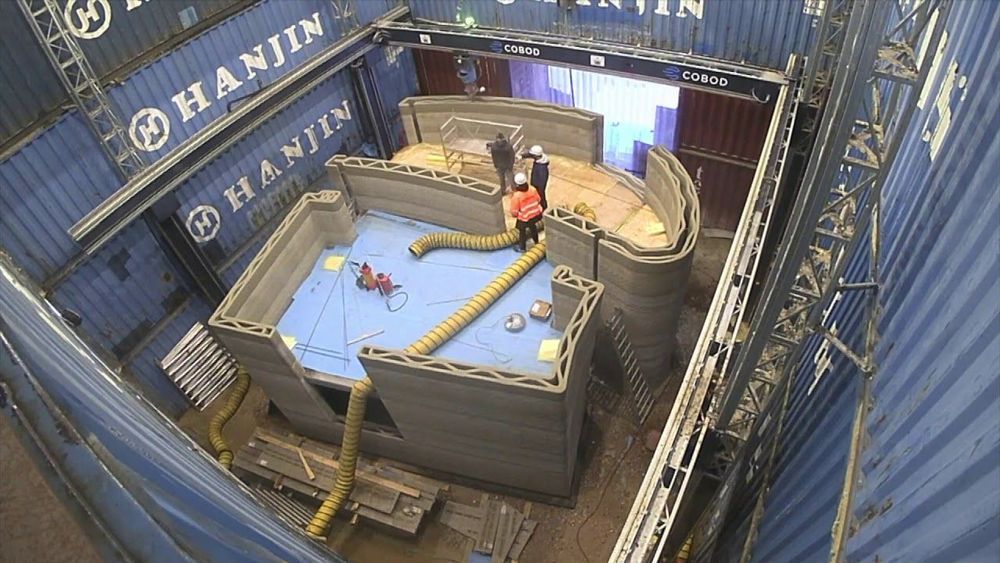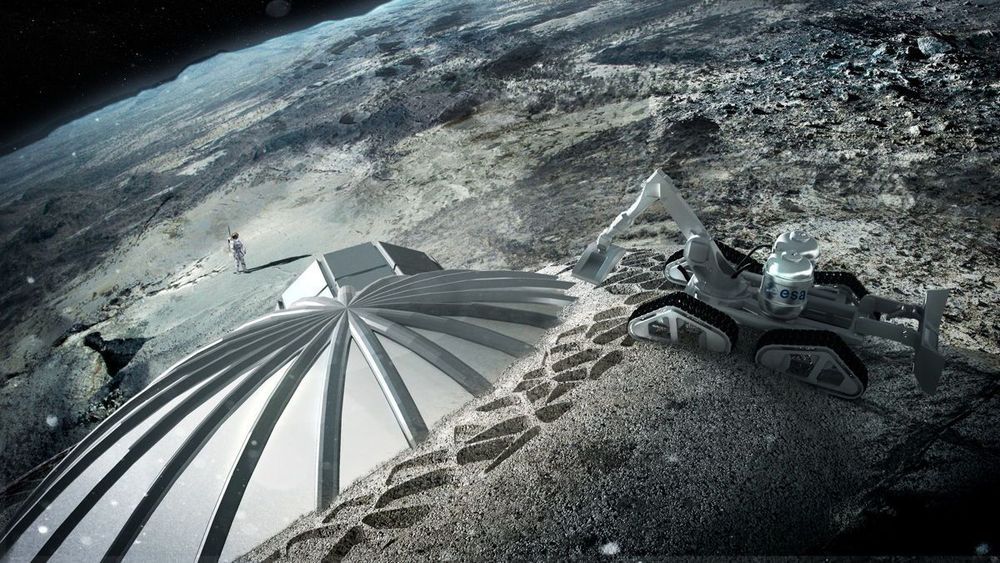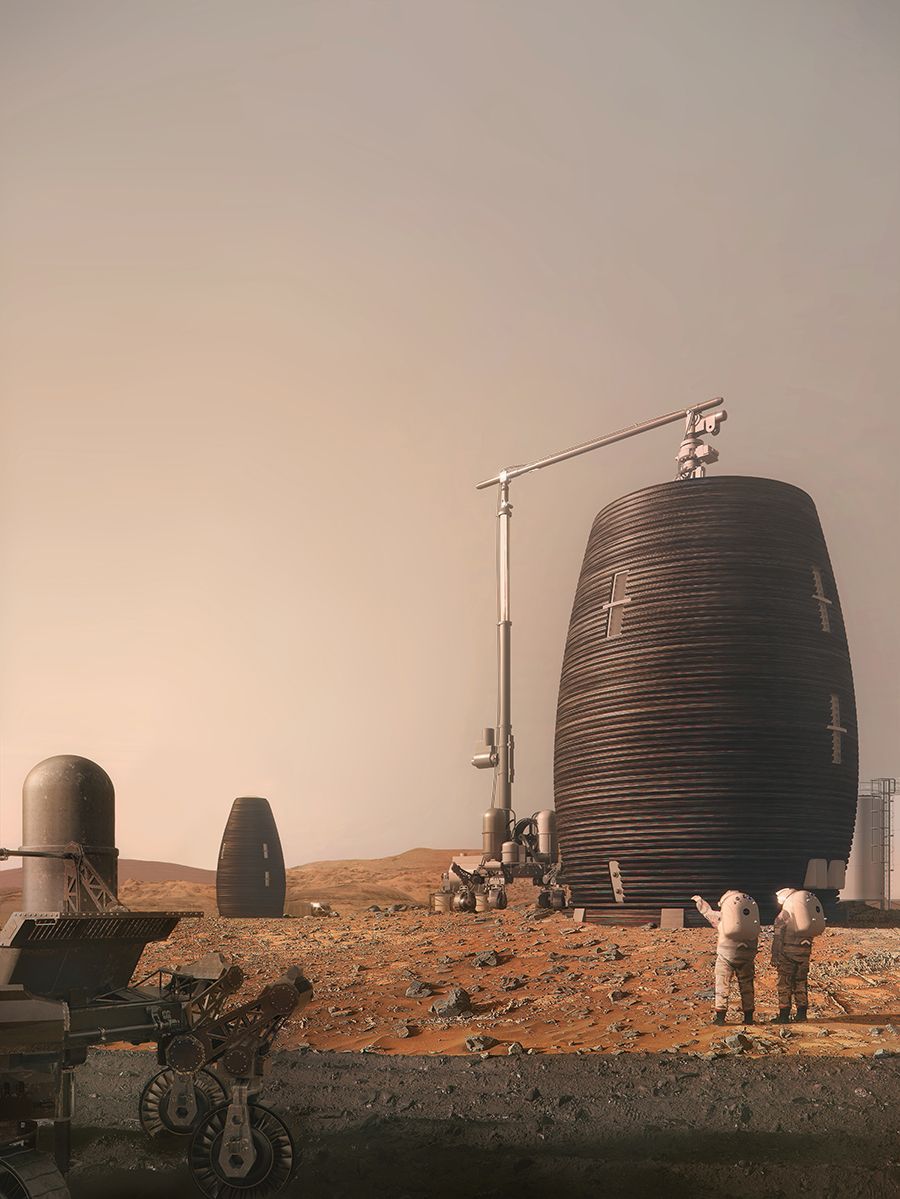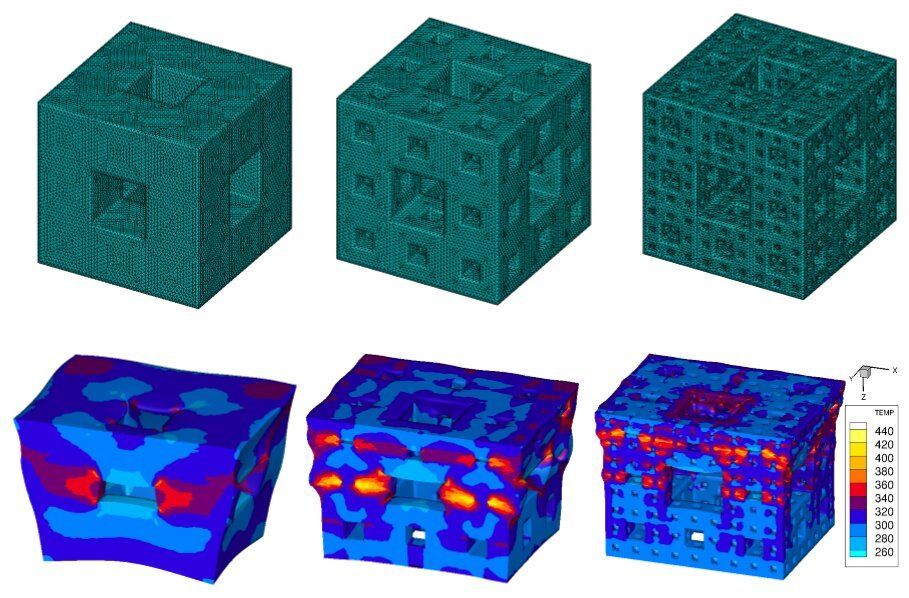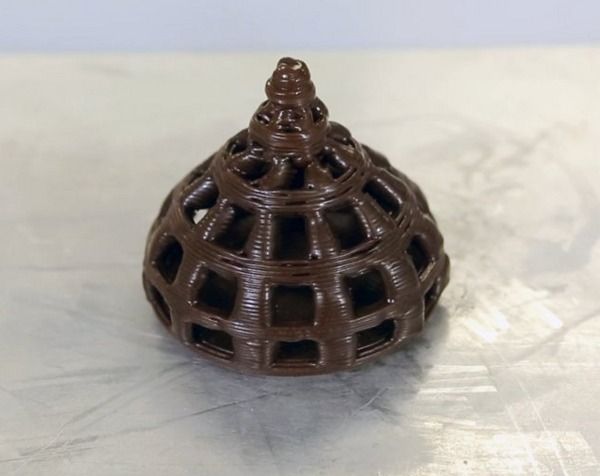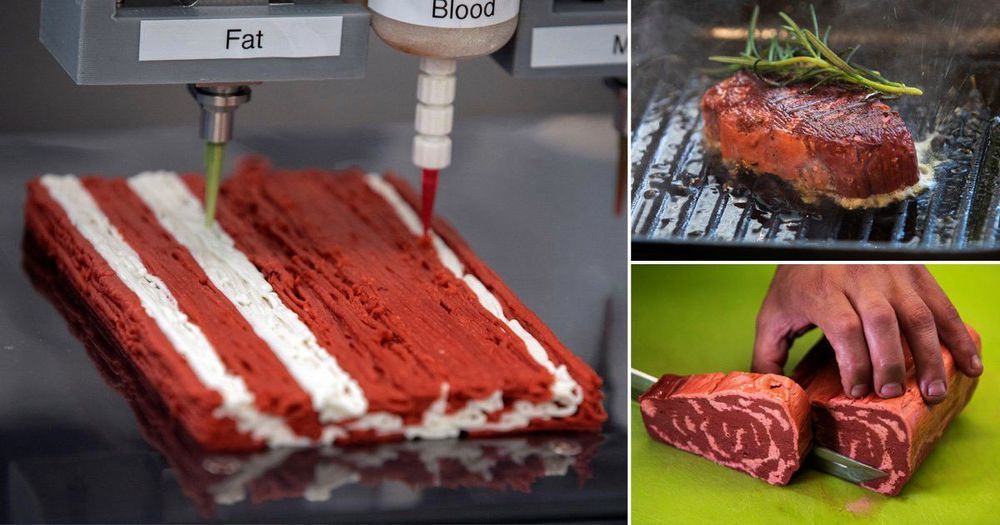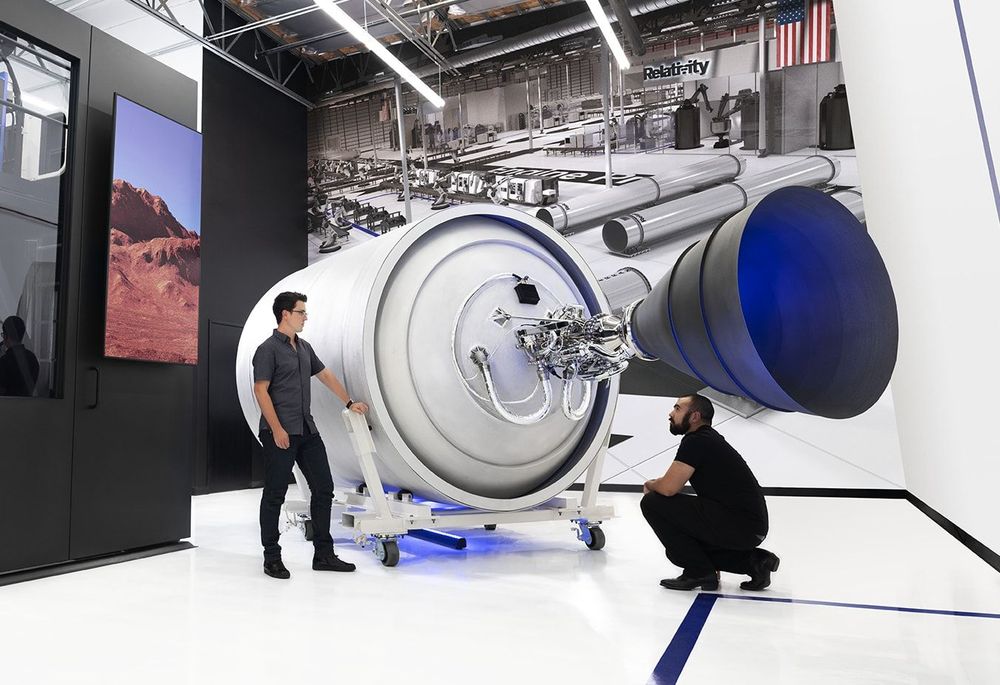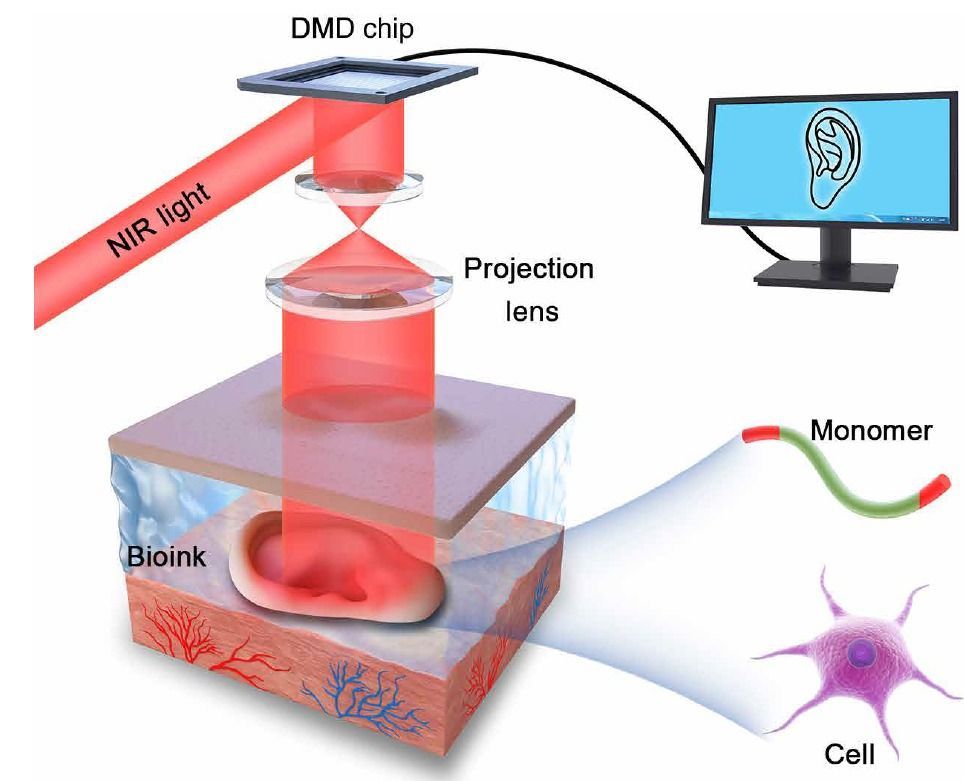Archive for the ‘3D printing’ category: Page 44
Jul 17, 2020
Printer lickin‘ good: KFC is bioprinting chicken nuggets
Posted by Brent Ellman in categories: 3D printing, bioprinting, food
“The partners are working together to develop the world’s first laboratory-produced chicken nuggets. The 3D printed nuggets are expected to be similar in taste and appearance to KFC’s original product, but will have the benefit of being more environmentally friendly to produce.”
When I think of KFC and its largely unchanging menu of fried chicken, I do not immediately think of innovation. However a new collaboration forged between the fast-food company and Russia-based bioprinting firm 3D Bioprinting Solutions might just change my mind. The partners are working together to develop the world’s first laboratory-produced chicken nuggets. The 3D printed nuggets are expected to be similar in taste and appearance to KFC’s original product, but will have the benefit of being more environmentally friendly to produce.
The bioprinted chicken nugget project is already underway, and the unlikely partners plan to have a final product ready for testing by this fall. The effort is part of KFC’s mission to create a “restaurant of the future” which leverages state-of-the-art technologies like 3D bioprinting to overcome solutions in the food industry today: such as finding more eco-friendly alternatives to traditional meat.
Continue reading “Printer lickin‘ good: KFC is bioprinting chicken nuggets” »
Jul 13, 2020
How 3D Printers Could Build Futuristic Moon Colony
Posted by Quinn Sena in categories: 3D printing, habitats, space
Circa 2019
The European Space Agency (ESA) study is investigating how practical constructing a manned base on the moon only using 3D printing technology could be, given that it would rely primarily on lunar dirt for building materials.
“Terrestrial 3D printing technology has produced entire structures,” Laurent Pambaguian, who heads the project for ESA, said in a statement. “Our industrial team investigated if it could similarly be employed to build a lunar habitat.”
Jul 9, 2020
3D-printed Mars habitat
Posted by Future Timeline in categories: 3D printing, habitats, robotics/AI, space
AI SpaceFactory, a space architecture and technology design agency, recently won first prize in NASA’s competition to build a prototype Mars habitat.
Jul 7, 2020
Shock-dissipating fractal cubes could forge high-tech armor
Posted by Quinn Sena in categories: 3D printing, materials
Tiny, 3D printed cubes of plastic, with intricate fractal voids built into them, have proven to be effective at dissipating shockwaves, potentially leading to new types of lightweight armor and structural materials effective against explosions and impacts.
“The goal of the work is to manipulate the wave interactions resulting from a shockwave,” said Dana Dattelbaum, a scientist at Los Alamos National Laboratory and lead author on a paper to appear in the journal AIP Advances. “The guiding principles for how to do so have not been well defined, certainly less so compared to mechanical deformation of additively manufactured materials. We’re defining those principles, due to advanced, mesoscale manufacturing and design.”
Shockwave dispersing materials that take advantage of voids have been developed in the past, but they typically involved random distributions discovered through trial and error. Others have used layers to reverberate shock and release waves. Precisely controlling the location of holes in a material allows the researchers to design, model and test structures that perform as designed, in a reproducible way.
Jul 7, 2020
3D Printing is Revolutionizing the Chocolate Industry
Posted by Quinn Sena in categories: 3D printing, food
Charles Goulding and Ryan Donley of R&D Tax Savers discuss 3D printing as it impacts chocolateering.
Chocolate has been around for millennia now, dating as far back as early 1750 B.C., presumably in the area of the Gulf Coast of Vera Cruz where cocoa beverages or chocolate drinks were used in ceremonies by pre-Olmec peoples. Evidence suggests cacao pods may have even been used in alcoholic beverages as early as 1400 B.C. Today, the cacao bean has evolved to encompass a $50 billion chocolate industry worldwide that consists of edible chocolate confections being brought to mass markets.
Jul 2, 2020
The world’s first 3D-printed vegan steak is here and could hit restaurants soon
Posted by Brent Ellman in categories: 3D printing, food
Israeli company Redefine Meat has unveiled the world’s first vegan 3D-printed burger and it could be hitting restaurants soon.
Jun 24, 2020
3D rocket printer Relativity signs deal with Iridium and plans to build a California launchpad
Posted by Genevieve Klien in categories: 3D printing, satellites
Relativity Space, a growing startup that aims to almost entirely 3D-print rockets, on Wednesday announced it struck another major launch deal, as well as an agreement with the U.S. Air Force, to build a launchpad on the California coastline.
The Los Angeles-based rocket builder signed an agreement with satellite operator Iridium Communications, to launch up to six satellites as needed as early as 2023. Over the course of more than half a dozen launches with SpaceX, Iridium completed its second-generation satellite constellation in January 2019, with 66 operational satellites and 9 spares in orbit.
The Iridium deal means Relativity now has agreements to launch for five different companies, having previously announced contracts with Canadian satellite communications operator Telesat, California-based Momentus, Thai satellite broadband company mu Space and Seattle-based Spaceflight Inc. All the contracts have remarkably come before Relativity’s first launch, which is scheduled to happen before the end of 2021.
Jun 10, 2020
Researchers mimic nature for fast, colorful 3D printing
Posted by Saúl Morales Rodriguéz in categories: 3D printing, nanotechnology
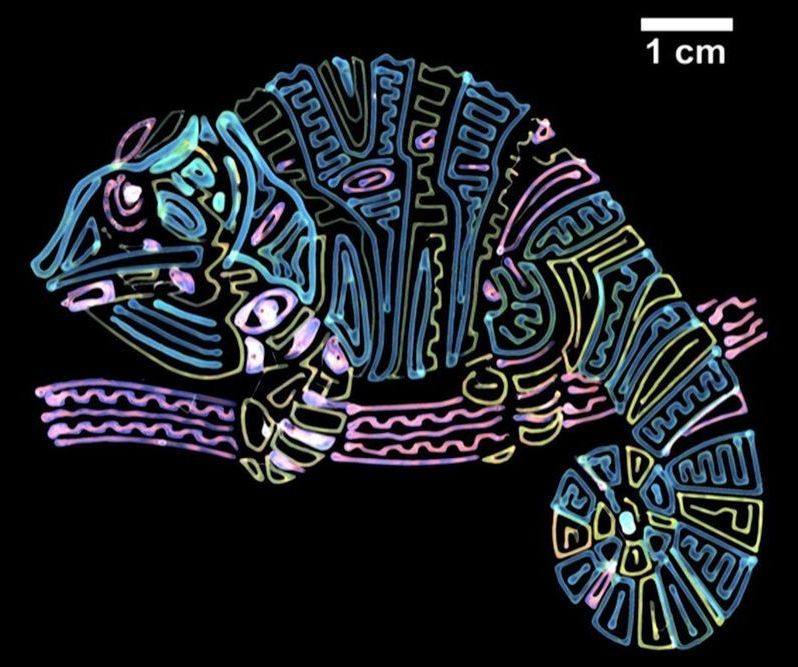
Brilliantly colored chameleons, butterflies, opals—and now some 3D-printed materials—reflect color by using nanoscale structures called photonic crystals.
A new study that demonstrates how a modified 3D-printing process provides a versatile approach to producing multiple colors from a single ink is published in the journal Science Advances.
Continue reading “Researchers mimic nature for fast, colorful 3D printing” »
Jun 9, 2020
Video: Scientists grow a human ear with new, skin-crawling 3D printing method
Posted by Brent Ellman in categories: 3D printing, bioprinting, biotech/medical
Their new approach to 3D bioprinting and allows for non-invasive tissue growth and wound healing. It works through injecting bioink cells, the additive material traditionally used in 3D bioprinting, under the skin and using near-infrared light to penetrate the tissue and transfer customizable building designs — like an ear or an abstract shape — to newly injected cells.
The ear began to form in just 20 seconds.
Using a new approach to 3D bioprinting researchers have designed a way to non-invasively grow a wide range of customizable tissue under living skin.
